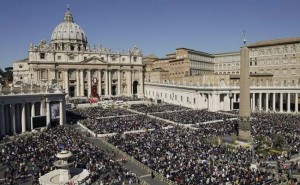 Who Saves Whom? by Michael Horton
Who Saves Whom? by Michael Horton
“God casts His vote; Satan casts his, but you must cast the deciding ballot”?
©1992, 1999 Alliance of Confessing Evangelicals
The touchstone question in the running debate between Jesus and the Pharisees, Paul and the Judaizers, Augustine and Pelagius, the Dominicans and the Franciscans, the Reformers and the medieval Roman Catholic church, and the Calvinists and Arminians is this: Who saves whom?
In this article I want to offer some brief scriptural responses to the common objections concerning the doctrine of election. If one does not believe in the doctrine of unconditional election, it is impossible to have a high doctrine of grace. As Luther told Erasmus, ignorance of this great truth is in a real sense ignorance of the Christian gospel. “For when the works and power of God are unknown in this way, I cannot worship, praise, thank, and serve God, since I do not know how much I ought to attribute to myself and how much to God.” This distinction is essential, he added, “if we want to live a godly life.” Further, “If we do not know these things, we shall know nothing at all of things Christian and shall be worse than any heathen.”1 As Luther pointed out in his debate with Erasmus, this issue of free will and election is essential in maintaining the doctrine of justification by eliminating any element of human decision or effort as a foothold for merit. Therefore, let’s take a brief survey of the biblical support for this important doctrine by considering one of the principal passages: Romans chapter nine.
The Covenant
Running throughout the Old Testament and into the Gospels is the concept of covenant. Although God is the sovereign ruler of all creation and, therefore, quite capable of ruling merely as a dictator, he nevertheless condescends to enter into a covenant with fallen creatures, binding us to him, and himself to us. Continue reading

